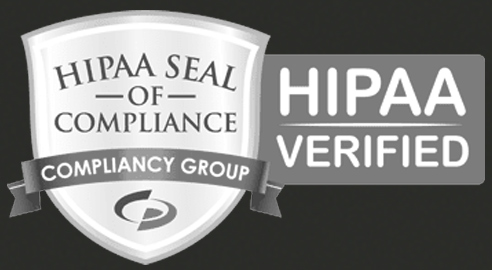
AI will replace most marketing, sales and customer service tasks in your practice by 2030
Too many people underestimate the profound impact we’ll feel from automation. Many of us aren’t remotely aware that our jobs will not exist ten to twenty years from now.
Automation will likely affect people with jobs that require basic data input and data-processing skills, with a projected decline in jobs of 19% in the United States and 23% in Europe in the 2016 to 2030 period. This decline is expected to occur in nearly all sectors as machines increasingly take over straightforward data-input tasks. 1https://www.mckinsey.com/featured-insights/future-of-work/skill-shift-automation-and-the-future-of-the-workforce
AI has the potential to streamline administrative tasks such as filling out patient forms, recording vital signs, and ordering medications, potentially making traditional data entry tasks obsolete.
The future of eye surgery marketing, sales and service is already here
Already, the Hattie platform offers AI-driven automation workflows that can:
- Write paid advertisements
- Write SEO and schema meta-data
- Write blog posts and social media posts
- Write web pages
- Optimise these web pages around focus keyword phrases
- Respond intelligently to web chat queries and social media messages
- Offer self-tests and score them to qualify leads
- Engage leads with email and SMS and automated ringless voicemail
- Book online appointments
- Send reminders
- Take and process payments
- Register patients
- Send them automated SMS after surgery
- Book and remind them of all their post-op appointments
- Generate automated patient review requests for Google and Facebook
These are many of the marketing, sales and customer service tasks that AI and automation has made less human-powered. Which bets the question…
Should you fire your marketing agency?
As marketing continues to evolve with the rise of AI and automation, marketers need to understand which skills will remain valuable in the long term. While many marketing tasks may be automated or enhanced by AI, some skills will likely resist automation. Here are some examples:
Creativity: One article notes that “AI will never be able to replace creativity and imagination,” suggesting that marketers who can come up with unique and creative ideas will remain valuable.2Marketing is one of the areas of business operations where it is widely predicted that artificial intelligence (AI) will drive enormous change. In fact, a McKinsey study found that, along with…
Strategic thinking: While AI can help marketers analyse data and make predictions, it may not be able to develop the same level of strategic thinking and decision-making skills as a human. The same article notes, “Strategic thinking is one of the critical marketing skills that artificial intelligence won’t replace.”
Emotional intelligence: Understanding and connecting with customers on an emotional level is a skill that is difficult to automate. “Empathy and emotional intelligence are still the domain of human beings.”
Human interaction: As AI and automation become more prevalent in marketing, it may become even more critical for marketers to connect with customers on a human level. This includes skills such as active listening, effective communication, and relationship-building. 3Spotlight Series / AI-Powered Marketing. 01. How to Design an AI Marketing Strategy. 02. Why You Arent Getting More from Your Marketing AI. 03. Dont Buy the Wrong Marketing Tech. Summary. In …
While many marketing tasks may be automated or enhanced by AI and automation, skills that involve creativity, strategic thinking, emotional intelligence, and human interaction will likely remain valuable in the long term.
The time is now to retrain your contact centre team and receptionists
According to BBC news, telephone salespersons, for example, is the occupation most likely to be automated (1st out of 366) with a 99% chance.
Many call centre jobs will be entirely phased out in only ten years. Many medical secretaries will no longer have telephone handling duties (likely much to their relief!)
Sadly for them, 85% of their tasks will also be automated too. You might recall a recent article we published on this site regarding turning your website into a 24/7 receptionist with online scheduling software.
If you employ telephone salespeople or receptionists, what can you do?
Roles requiring abilities like
- thinking on your feet
- being creative
- demonstrating empathy
- demonstrating emotional intelligence,
- using negotiating skills
hold a significant advantage to telemarketing or telephone reception jobs that are scripted or do not require a high degree of social intelligence. Training your employees to develop and hone these skills is crucial for them to remain employed into the late 2020s.
In 10 years, we predict that only people with the above-mentioned skills will be employed in the telephone sales jobs that remain.
Healthcare chatbots will take over duties that are repetitive and memorisation based. If you think about the poor customer service levels and lack of empathy, you sometimes feel from a highly scripted telephone salesperson. It is not surprising that these roles could be easily automated. The key is to focus on excelling at sales work that cannot be automated.
While technology such as automation and AI is expected to replace certain sales and customer service tasks in the future, some sales and customer service skills are likely to resist automation and remain valuable in the long term.
Here are a few examples:
Building relationships: The ability to build and maintain strong relationships with patients is an essential sales skill that is unlikely to be replaced by automation or AI. Building a relationship with a patient often requires empathy, active listening, and an understanding of their needs and preferences, which are difficult to replicate through technology.
Creativity: Sales professionals who can think outside the box and develop creative solutions to problems will likely remain valuable, as these skills are difficult to automate. Creativity can help salespeople differentiate themselves from competitors, find new opportunities, and develop solutions for patients.
Strategic thinking: Salespeople who can develop and execute a strategic sales plan will likely remain in demand. This skill requires a deep understanding of the industry and the ability to anticipate changes and trends. While AI can help sales professionals analyse data and make predictions, it may not be able to develop the same level of strategic thinking and decision-making skills as a human.
Adaptability: Sales professionals who can adapt to changes in the market, technology, and patient needs will likely remain valuable in the long term. This requires flexibility, resilience, and the ability to learn and grow over time, which may be difficult to replicate through automation or AI.
Empathy and human interaction: AI and automation may be able to handle routine customer service requests, such as simple account inquiries or support requests. However, more complex or emotionally charged interactions may require human empathy and understanding. As one article notes 4The latest technology for service is virtual agents: Automated systems, trained on service transcripts, that can use AI to recognize and respond to customer requests whether by phone or chat. Given the history of customer service, you might think the focus here is once again on cutting jobs and saving money. But its not., “The future of customer service is AI-human collaboration” and argues that AI can enhance human customer service representatives’ ability to build relationships with customers and provide more personalised service.5The latest technology for service is virtual agents: Automated systems, trained on service transcripts, that can use AI to recognize and respond to customer requests whether by phone or chat. Given the history of customer service, you might think the focus here is once again on cutting jobs and saving money. But its not.
Complex problem-solving: While AI and automation can handle many routine customer service tasks, more complex problems may require human ingenuity and problem-solving skills. The same article notes, “The ability to understand the customer’s issue and find a unique solution to their problem remains a key differentiator for good customer service.”
Emotional intelligence: Similar to empathy, emotional intelligence is a skill that is difficult to automate. Human customer service representatives who can understand and manage their own emotions, as well as empathise with and respond appropriately to customer emotions, are likely to remain valuable in the long term.
While many aspects of marketing, sales and customer service jobs may be automated or made obsolete by AI and automation, these examples suggest that human interaction, complex problem-solving, and emotional intelligence will likely remain essential skills for marketers, salespeople, and customer service representatives in the future.
NOTE: The best way to answer that nagging question about practice growth or marketing or patient volume in the back of your mind is to book a free 15-minute compatibility call. Get some options and go away with a clear idea of what’s possible.
About the author

Rod Solar
Founder & Scalable Business Advisor / fCMO
Rod Solar is a co-founder of LiveseySolar and a Scalable Business Advisor for its customers. Rod mentors and coaches eye surgery business CEOs/Founders and their leadership teams to triple their sales, double their profit, and achieve their “ideal exit”.
Related Posts
Meet our Co-Founders
We’re passionate about helping leaders of high-quality, growth-minded practice owners double their practice revenue

Rod Solar
Founder & Scalable Business Advisor
For over 20 years, I’ve helped ophthalmology entrepreneurs scale their private practices. I specialise in doubling revenue within three years by offering a proven framework, hands-on experience, and a team of experts who implement what works. We take the guesswork out of growth and scale, so you can focus on delivering exceptional patient care while maximising the value of your business.
LiveseySolar completely transformed the way we were approaching this… We’ve gone from having just the dream of having a practice to having a practice up and running with people making inquiries and booking for procedures… It’s extremely pleasing. We feel lucky we connected with LiveseySolar.
— Dr Matthew Russell, MBChB, FRANZCO, specialist ophthalmic surgeon and founder of VSON and OKKO

Laura Livesey
Founder & CEO
I’m the co-founder & CEO of LiveseySolar. I’ve developed powerful eye surgery marketing systems that increase patient volumes and profits for doctors, clinics, and hospitals, since 1997.
Rod and Laura know as much about marketing surgery to patients as I know about performing it. They are an expert in the field of laser eye surgery marketing. They know this industry inside out. I believe that they could help many companies in a variety of areas including marketing materials, sales training and marketing support for doctors.
— Prof. Dan Reinstein, MD MA FRSC DABO, founder of the London Vision Clinic, UK











